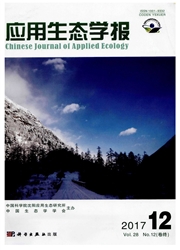

 中文摘要:
中文摘要:
我国能源消费与经济增长的矛盾日益突出.辽宁省是我国重工业基地和能源消耗大省,经济发展对能源依赖性强,能源供不应求的状态日益显著.为了深入了解辽宁省能源消费与经济增长的关系,提出科学的低碳发展建议,本文基于2000—2012年辽宁省能源消费与经济增长相关数据,应用灰色关联分析,分别对辽宁省能源消费产业和能源消费品种与经济增长的相关性进行实证分析.结果表明:在各产业能源消费中,批发零售业和住宿餐饮业能源消费量很少,但与经济增长的关联程度最大,工业消费量最大,却与经济增长的关联度较弱;在能源消费品种中,石油和水电能源消费量与经济增长的灰色关联度显著,但煤炭能源消费量与经济增长的关联度不显著,表明煤炭的利用效率低.为实现低碳可持续发展,辽宁省应转变经济增长方式、调整产业结构、优化能源结构、提高能源利用效率,特别是应大力发展生产性服务业,推进清洁能源和可再生能源的开发.
 英文摘要:
英文摘要:
The contradiction between energy consumption and economic growth is increasingly prominent in China. Liaoning Province as one of Chinese heavy industrial bases,consumes a large amount of energy. Its economic development has a strong dependence on energy consumption,but the energy in short supply become more apparent. In order to further understand the relationship between energy consumption and economic growth and put forward scientific suggestions on low carbon development,we used the grey correlation analysis method to separately examine the relevance of economic growth with energy consumption industries and energy consumption varieties through analysis of energy consumption and economic growth data in Liaoning Province from 2000 to 2012. The results showed that the wholesale and retail sector and hotel and restaurant sector were in the minimum energy consumption in all kinds of sectors,but they presented the closest connection with the economic growth. Although industry energy consumption was the maximum,the degree of connection between industry energy consumption and economic growth was weak. In all types of energy consumption,oil and hydro-power consumption had a significant connection with economic growth.However,the degree of connection of coal consumption with economic growth was not significant,which meant that coal utilization efficiency was low. In order to achieve low carbon and sustainable development,Liaoning Province should transform the economic growth mode,adjust industry structure,optimize energy structure,and improve energy utilization efficiency,especially promote producer services and develop clean and renewable energy.
 同期刊论文项目
同期刊论文项目
 同项目期刊论文
同项目期刊论文
 期刊信息
期刊信息
